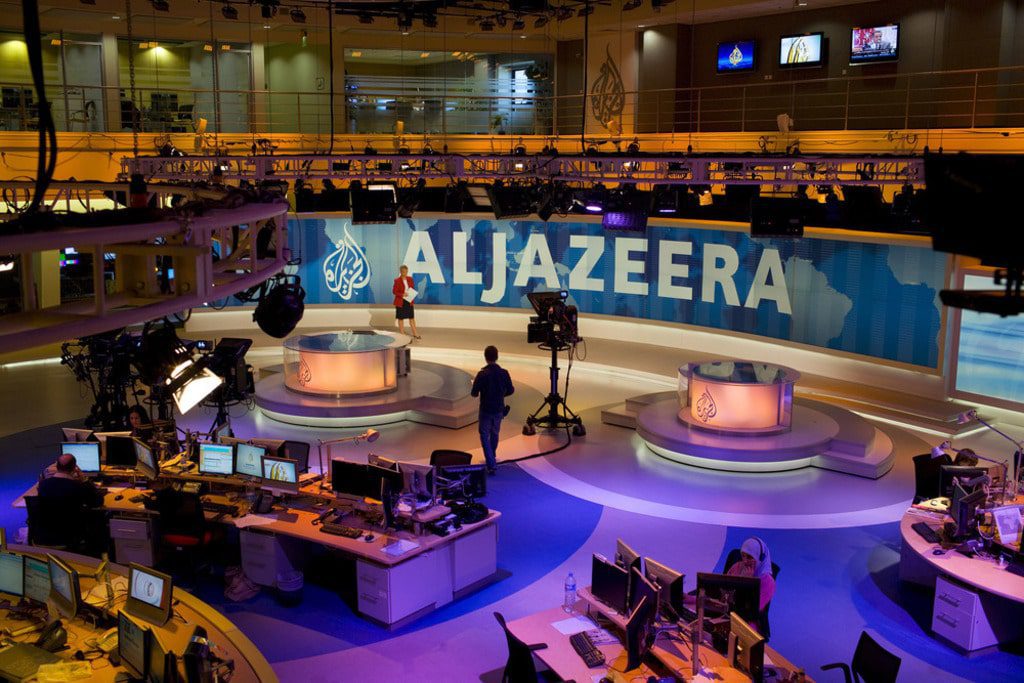
The crisis that erupted when Saudi Arabia, the United Arab Emirates (UAE), Egypt and Bahrain cut diplomatic ties with Qatar remains unresolved nearly two months on, despite the efforts of countries such as Kuwait and Turkey to mediate.
The feud started after Qatar’s emir, Sheikh Tamim bin Hamad al-Thani, was quoted by the state-run news network al-Jazeera as saying that Doha has “tensions” with the Trump administration. He also said relations with Israel are “good” and acknowledged Iran as an “Islamic power”. Such statements are at odds with the prevailing sentiment in the Gulf.
Qatar said the quotes were fabricated and posted by hackers but did not identify the source. Neither did the purported fake story stop Saudi Arabia and the UAE from responding through their own media outlets. In what is deemed a precedent among Gulf neighbours, they harshly criticized al-Thani and accused Qatar of supporting radical groups around the Middle East.
The same day, the two countries blocked access to al-Jazeera websites as well as the political newspaper al-Watan, the semi-official newspaper al-Raya, the pro-government al-Sharq daily and the London-based Middle East Eye website.
A day later, Bahrain and Egypt also blocked websites run by al-Jazeera. In addition, Egypt blocked other websites including that of Mada Masr, a popular online news outlet known for its investigative reports on the Egyptian government, citing ‘support for terrorism’ and ‘spreading false news’ as the reasons for the move.
Although appearing to take the moral high ground, Egypt’s track record on press freedom is horrendous. The Committee to Protect Journalists (CPJ) ranks it as one of the most dangerous countries in the world for journalists. In 2016 alone, Egypt jailed more than 25 reporters, including al-Jazeera’s Mahmoud Hussein, who is still awaiting trial on charges of spreading false news.
Moreover, in the 2017 World Press Freedom Index published by the non-governmental organization Reporters Without Borders, Saudi Arabia ranks 168th out of 180 countries, Bahrain 164th and the UAE 119th (Qatar ranks 123rd).
In other words, these countries are no strangers to crackdowns on free speech and freedom of information. Although the pretext for the most recent crackdown was the desire to cut funding for extremist groups and the spread of radical Islamist ideology, the question remains: Why has the Saudi-led bloc demanded the closure of al-Jazeera as one of the main conditions for the restoration of diplomatic ties with Qatar?
In a 5 June 2017 article in Newsweek, Sultan Sooud al-Qassemi, a prominent Emirati commentator on Arab affairs and a member of the ruling royal family, predicted that the Gulf countries would demand the “complete shuttering of the al-Jazeera TV Network before any mediation can take place”. However, his ‘prediction’ may have been more the relaying of a message to Qatar.
Noha Mellor, professor of media at Britain’s University of Bedfordshire, told the Washington Post she believes Qatar will be forced to compromise and al-Jazeera might be sacrificed. “Or they will have to tone it down,” she said, mainly by cutting back on coverage of Saudi Arabia, something the network has done in the past to placate the kingdom.
Although many Arab countries have previously sought to shut down the channel since it was founded in 1996, its coverage during and after the 2011 Arab Spring uprisings – which was lauded by viewers around the world – has made it particularly unpopular with state institutions.
Noha Aboueldahab, a visiting fellow at the Brookings Doha Center, told the Washington Post that the channel’s current vulnerability stems from the fact that authoritarian regimes in the region continue to see it as a threat because of its use as a platform for opposition leaders and activists.
Although Qatar itself is not a democracy and al-Jazeera rarely reports negatively on the country, it has stood strong in its reporting on the region and further afield, covering topics that other outlets often ignore.
Moreover, although al-Jazeera has its own political agenda, it resonates with a generation born under dictatorship but raised in the age of the internet. When young people took to the streets in Tunisia, Libya, Egypt, Syria, Yemen and Bahrain to turn dreams of democracy and freedom into a reality, Doha’s instinct for defying the status quo through its influential soft-power weapon – al-Jazeera – intersected with these young people’s aspirations.
For instance, Doha’s support for the Muslim Brotherhood, one of the main beneficiaries in the early days of the Arab Spring, angered the countries now laying siege to Qatar and forced them to step in. Saudi Arabia and the UAE bankrolled the 2013 military coup in Egypt that ousted Muslim Brotherhood president Mohamed Morsi and have propped up Abdel Fattah al-Sisi’s regime ever since. They have also funded and armed General Khalifa Haftar in Libya and waged an open war on the forces of the Arab Spring.
In recent weeks, several Gulf states have announced that ‘pro-Qatar’ speech is now punishable under cybercrime laws, a favoured means of repression in the region. The UAE, for instance, warned that any citizen who expresses sympathy or support for Qatar on social media could face exorbitant fines or jail time of up to 15 years. Bahrain followed suit, announcing penalties of up to five years in prison.
These constraints set a dangerous precedent in an already restrictive environment for freedom of expression. Regardless of Doha’s policies, al-Jazeera remains a media leader, providing news coverage to millions of people in the Gulf and beyond. Further suppression by Qatar’s oil-rich neighbours will only complicate matters as the crisis rumbles on.


